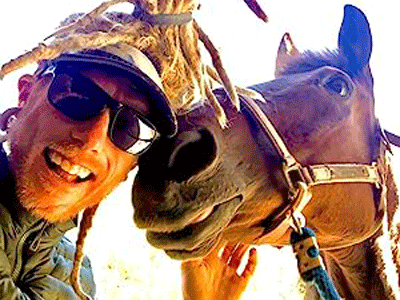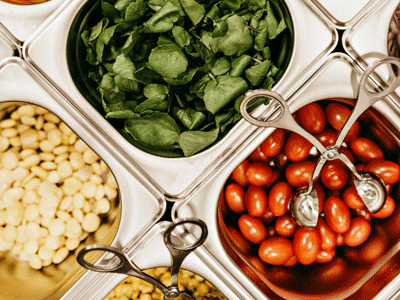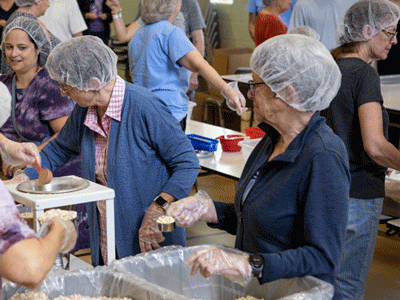Take Action on these current priorities:
FAIR COMPENSATION: Demand fair prices for farmers, fishers and other producers, and fair wages for everyone in the food system.
- Raise wages for workers through onefairwage.org, fightfor$15.org or other living wage campaigns; and
- Call on Wendy’s to join the Fair Food Program
FOOD SOVEREIGNTY: Resist harmful practices and policies and build just and sustainable local & regional food economies.
- Advocate on the Farm Bill. Download the PC(USA)’s Eater’s Guide to the Farm Bill
- Call on the EPA to better regulate factory farms. Learn more at PC(USA)’s webpage on factory farming.
You and your congregation can also volunteer, send work teams, and advocate in support of these groups. Find them on the OGHS Engagement Map.
Ending hunger is possible!
There are deep injustices in our food system that we as Christians are called on to address. The root—or systemic causes—of hunger are poverty, racism, exploitation, social and political marginalization, and structures that reinforce historic injustices. To address the root causes of hunger, power and wealth must be shared as Christ demonstrated, so that all are fed and can live fully.
Guided by our partners working on the ground to address these structural inequities, we have been invited to join in the work of resisting unfair systems and creating life-giving alternatives. Using capacity and movement building as our foundational approach, we pursue the goal of ending the systemic poverty and structural racism, which lead to hunger, through two inter-related areas: (1) achieving fair wages and worker rights, and (2) building just and sustainable local/regional food economies.
1. Advocate for Fair Wages & Worker Rights
People in the United States are hungry and impoverished because their wages are too low. We can help ensure fair prices for producers and pickers, prevent wage theft and exploitative payday lending, and advocate for minimum and living wages, while also protecting the rights of workers.
2. Build Food Sovereignty from the Ground Up
Build equitable local and regional food/farm/fishing economies everywhere, starting from where you live, while resisting the takeover of food and farm systems by giant corporations. The Eucharist is a key part of our faith, but it’s more than a Sunday ritual. For early Christians, bread was broken at every meal. We modern Christians are called to re-establish right relationship with food and to be mindful of where our food comes from, who has been involved, and how its production and distribution fulfills God’s vision of justice—or not.
Related Ways to Further This Work:
- Ask food companies to support mandatory FDA labeling of GMOs
- Do a Faith-Based Food Initiative! Download “How to” Handbook
- Plan your congregation’s participation in the Food Week of Action/World Food Day in October.




